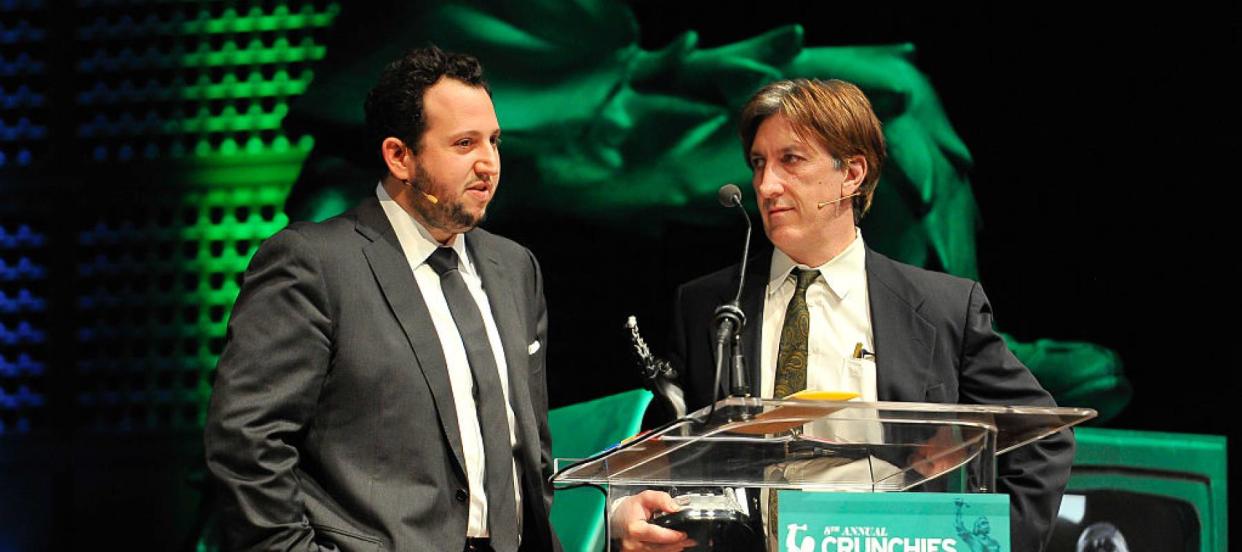Venture capitalist slams 'useless' Google employees for draining the economy and ‘taking money away’ from the workforce’s retirement programs. Is he right?

Tech stocks have had a good run recently — but the people behind those increases may not be working as hard as you’d think.
In fact, David Ulevitch thinks that most tech workers aren’t doing anything at all — and the venture capitalist at Andreessen Horowitz claims to know this from personal experience.
After Ulevitch sold his software security company for $635 million to Cisco, he stayed on at the company as senior vice president.
Don't miss
Jeff Bezos told his siblings to invest $10K in his startup called Amazon, and now their stake is worth over $1B — 3 ways to get rich without having to gamble on risky public stocks
Car insurance rates have spiked in the US to a stunning $2,150/year — but you can be smarter than that. Here's how you can save yourself as much as $820 annually in minutes (it's 100% free)
These 5 magic money moves will boost you up America's net worth ladder in 2024 — and you can complete each step within minutes. Here's how
He knows that people think these types of high-level white-collar jobs are “really important,” but, in reality, he said those employees don’t do much — and it’s not just hurting the company, but its shareholders, too.
“Those people aren't just being useless,” Ulevitch told business writer Emily Sundberg in her newsletter. “But they are also taking money away from the rest of the workforce's retirement programs.”
Employees at the companies in your stock portfolios can have an effect on your 401(k) or IRA — but not exactly in the way that Ulevitch claimed.
Layoffs often increase shares
Ulevitch cited Google as a primary example of a company that isn’t responsible with its money — or its workforce.
“The company has spent billions and billions of dollars per year on projects that go nowhere for over a decade,” he told Sundberg. “All that money could have been returned to shareholders who have retirement accounts.”
He added that he believes that half of Google workers do “no real work.” He also said that anyone who works in a company with more than 10,000 people knows that a “bunch” of people could be let go tomorrow and “the company wouldn’t really feel the difference.” In fact, the layoffs could even “improve” the company’s operations and bottom line.
Ulevitch isn’t wrong in stating that labor cuts can help a company’s bottom line. Layoffs are often a sign of difficult times in the sector, but not always.
NPR reported that the S&P 500 stocks hit “all-time highs” in January 2024 — particularly for tech stocks, which underwent major layoffs at the same time.
Microsoft, which USA Today reported laid off 1,900 people in January, saw its valuation hit more than $3 trillion during that same month.
Read more: This little-known investment strategy can save you thousands on your taxes
Better to have useless workers than unemployed ones
Ulevitch isn’t the only venture capitalist who is concerned about the glut of workers in the tech world. Keith Rabois, an investor in Tesla and a former executive at PayPal, is also concerned about the increase of “fake work” in the tech industry.
“There's nothing for these people to do,” Business Insider quoted Rabois as saying during an event in 2023. “What do these people actually do? They go to meetings.”
The issue with this is that, if all these tech workers were laid off tomorrow, there would be an increase in unemployment. The venture capitalists forget that a high unemployment rate is significantly worse for the economy (and retirement portfolios) than a bunch of people who get regular steady paychecks, even if they’re doing “fake work.”
The last time the U.S. saw a high unemployment rate — 14.7% — was in April 2020, at the height of the pandemic, according to the U.S. Bureau of Labor Statistics. At that same time, the National Bureau of Economic Research (NBER) determined there was also a recession.
NBER said they assess whether a time period is considered a “recession” based on multiple factors, one of which is unemployment. This is because consumption is another part of this assessment. If people don’t have jobs, they don’t usually have disposable income to spend and help boost the economy.
If you watched your stock portfolio survive the pandemic recession or the Great Recession of 2008, you know that unemployment is bad news for your portfolio. But with the current 3.9% unemployment rate, more people can invest in the market and the economy.
As Treasury Secretary Janet Yellen said on Good Morning America in January 2023, when the unemployment rate was at 3.4%: “You don't have a recession when you have 500,000 jobs and the lowest unemployment rate in more than 50 years.”
The best way to ensure that your 401(k) or IRA portfolio gives you the gains you need to retire comfortably is based on your own risk tolerance and a diversity of stocks, so that you don’t fully depend on the tech stocks to get you through your golden years.
What to read next
Car insurance premiums in America are through the roof — and only getting worse. But 5 minutes could have you paying as little as $29/month
Thanks to Jeff Bezos, you can now use $100 to cash in on prime real estate — without the headache of being a landlord. Here's how
'It's not taxed at all': Warren Buffett shares the 'best investment' you can make when battling rising costs — take advantage today
This article provides information only and should not be construed as advice. It is provided without warranty of any kind.
